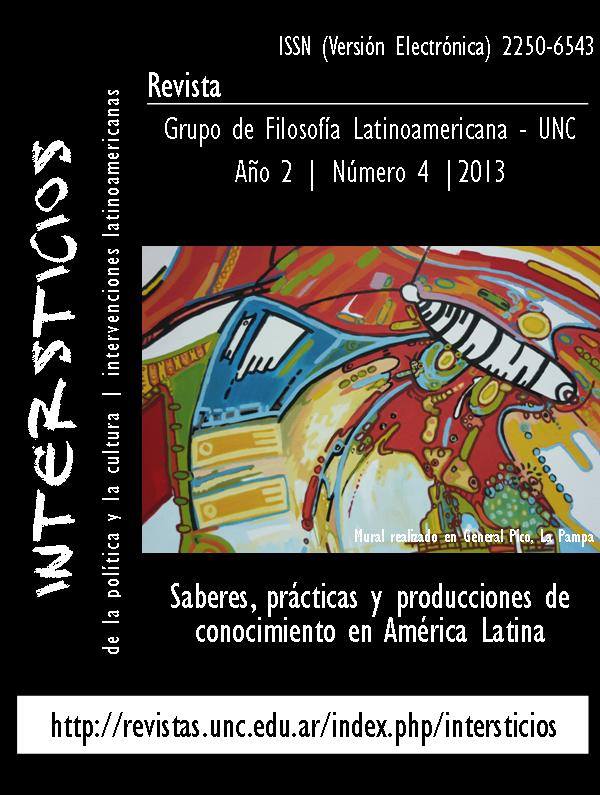CIVILIZACIÓN, PROGRESO E IMAGINACIÓN GEOGRÁFICA. EL INFORME DE LA COMISIÓN EXPLORADORA DEL CHACO (1876).
Abstract
Resumen
En los países de formación colonial, los procesos de conquista estatal del espacio contribuyeron a acentuar el peso del factor territorial en la formación estatal. En este marco se incluyen los esfuerzos de los gobiernos de las nuevas repúblicas latinoamericanas dirigidos a construir el propio territorio estatal y a la vez, producir una narrativa sobre éste que tiene como fundamentos los imperativos de modernización y progreso, el discurso civilizatorio. A partir de estas consideraciones, el presente trabajo se centra en el análisis del Informe de la Comisión Exploradora del Chaco, Argentina, en 1876, explorando los modos en que en este caso específico se ingresa a un territorio desconocido para la lógica del nuevo estado. Para ello, articula aportes de los Estudios Postcoloniales con los de Historia Social de la Geografía. Asimismo, se reflexiona sobre el modo en que estas prácticas van construyendo saberes que luego se legitimarán en la academia, específicamente en la Universidad Nacional de Córdoba, y constituirán los fundamentos sobre los que se empezará a discutir acerca de la relevancia de la disciplina Geografía en dicha institución.
Palabras claves: estado-nación, territorio, Chaco, exploración, imaginación geográfica.
Abstract
Processes of spatial state conquest at colonial countries contributed to emphasize the importance of territorial factor in state configuration. In this setting must be include the latinoamerican new republics governments efforts to prepare a narrative of power legitimation in order to construct the territorial construction at national-level itself and to produce a narrative based on modernization and progress, the civilization discourse. In this context, the present work focuses on the analysis of the Report of the Commission Explorer Chaco, Argentina, in 1876, exploring the ways in which, in this specific case, unknown territory is appropriate for the new state logic. To do so, articulates contributions from Postcolonial Studies and Social History of Geography. It also reflects how these practices constructed legitimated knowledge for the academy, specifically at the National University of Córdoba (Argentina), and will constitute the basis on which it will begin to argue about the relevance of the discipline Geography in that institution.
Key words: national state, territory, exploration, Chaco, geographical imagination.
Downloads
Downloads
Published
Issue
Section
License
Authors who have publications with this journal agree to the following terms:
a. Authors will retain their copyright and grant the journal the right of first publication of their work, which will simultaneously be subject to the Creative Commons Attribution License that allows third parties to share the work as long as its author and first publication in this journal are indicated.
b. Authors may adopt other non-exclusive license agreements for distribution of the published version of the work (e.g., deposit it in an institutional telematic archive or publish it in a monographic volume) as long as the initial publication in this journal is indicated.
c. Authors are allowed and encouraged to disseminate their work through the Internet (e.g., in institutional telematic archives or on their web page) after the publication process, which may produce interesting exchanges and increase citations of the published work (see The effect of open access).


